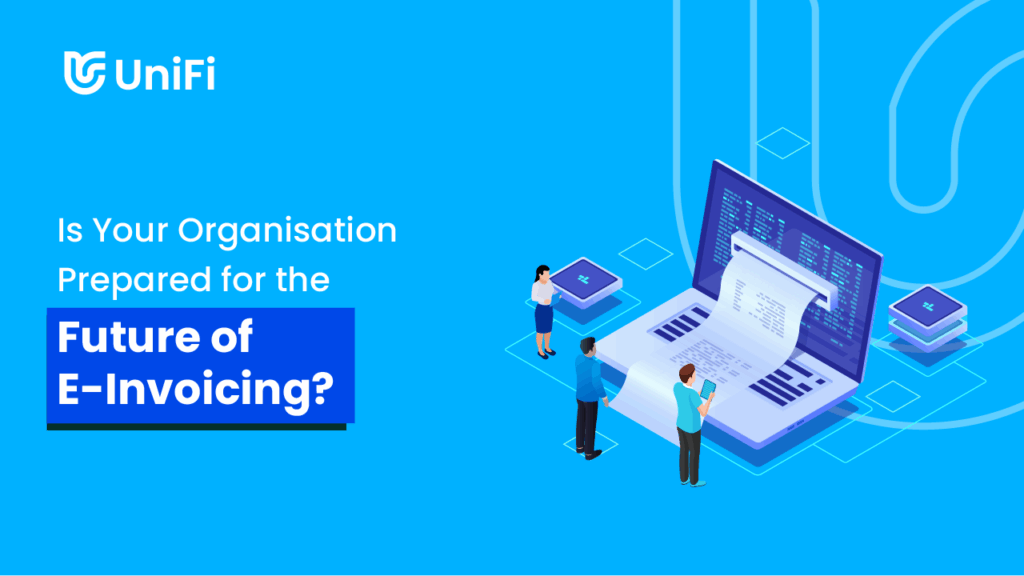The UK is on the verge of a major transformation in financial processes.
HMRC, alongside the Department for Business and Trade, launched a public consultation on standardising electronic invoicing (e-invoicing) across businesses and the public sector.
As more countries mandate digital invoicing, the UK is exploring its own approach, with potential benefits including reduced administrative costs, improved compliance, and faster payments.
For finance leaders, this isn’t just a regulatory shift—it’s an opportunity to modernise operations, improve efficiency, and enhance financial visibility.
What Is E-Invoicing?
E-invoicing is the digital exchange of invoice information between buyers and suppliers. Instead of sending a paper or PDF invoice via email, e-invoices are transmitted directly between financial systems, reducing manual intervention.
This process:
- Cuts processing costs—industry estimates suggest that e-invoicing reduces invoicing costs by 60-80%.
- Minimises errors—manual invoice entry has an average error rate of 10%, while e-invoicing removes this risk.
- Improves payment cycles—faster invoice processing leads to quicker payments and better cash flow.
- Enhances tax compliance—automation ensures tax data is accurate and simplifies reporting.
Why E-Invoicing Is Gaining Momentum
Globally, over 130 countries have adopted or are implementing e-invoicing regulations. The UK is now considering its own model, weighing voluntary adoption vs. mandatory requirements.
While some businesses in the UK already use e-invoicing, there are no national standards, leading to multiple, incompatible systems. The exception to this is suppliers to NHS England who are required to issue e-invoices via the Pan-European Public Procurement On-Line (PEPPOL) network.
By introducing a more unified approach, the government aims to:
- Reduce fraud and tax evasion through validated invoice tracking.
- Align UK businesses with international trade standards.
- Improve business productivity by cutting down on administrative tasks.
The UK’s Consultation on E-Invoicing
The HMRC consultation is exploring several key areas:
- Should e-invoicing be voluntary or mandatory? Countries like Italy and France have mandated e-invoicing, while others, like Australia, use voluntary models.
- Should the UK adopt a single standard? Standardisation would improve interoperability between businesses.
- Could e-invoicing support tax reporting? Integrating e-invoicing with HMRC’s systems could reduce tax errors and simplify VAT returns.
The consultation will run for 12 weeks, from 13 February 2025 to 7 May 2025, with the government considering feedback from businesses of all sizes before making policy decisions.
The Benefits of E-Invoicing
E-invoicing is more than just a compliance requirement—it’s a strategic advantage for finance teams.
With the UniFi platform’s next-gen e-invoicing capabilities, your whole organisation is sure to enjoy all the below benefits of e-invoicing:
1. Reduced Costs and Admin Burden
Processing invoices manually is expensive. Industry estimates suggest that e-invoicing can reduce invoicing costs by 60-80% by eliminating paper, postage, and manual data entry.
UniFi automates invoice capture, validation, and payment processing, thereby cutting operational expenses while freeing finance teams to focus on high-value tasks.
2. Faster Payments and Improved Cash Flow
Late payments are a major issue for UK businesses, particularly SMEs.
The Department for Business and Trade (DBT) found that delayed payments restrict growth and create cash flow bottlenecks.
UniFi can speed up invoice approvals and payments by ensuring seamless, real-time processing—helping organisations maintain healthy cash flow.
3. Fewer Errors, More Accurate Financial Data
Manually entered invoices have an average error rate of 10%, leading to payment delays, disputes, and tax filing mistakes.
With UniFi, invoices are validated at the point of entry, reducing discrepancies and ensuring financial data is always accurate for reporting and compliance.
4. Stronger Fraud Prevention and Data Security
Invoice fraud is a growing concern, with fraudulent invoices costing businesses millions annually.
E-invoicing provides a secure, tamper-proof digital trail, reducing the risk of fake invoices, duplicate payments, and VAT fraud.
UniFi ensures all transactions are authenticated, logged, and auditable, providing an additional layer of security.
5. Seamless Tax Compliance and HMRC Alignment
E-invoicing is expected to play a key role in HMRC’s tax digitisation plans, improving accuracy in VAT returns and simplifying compliance.
UniFi comes with a powerful HMRC-recognised Making Tax Digital App, which can easily connect your accounting system to HMRC’s MTD for VAT, automate Making Tax Digital processes, and even replace your MTD Software. It is designed to automate VAT calculations, reduce errors, and ensure businesses stay compliant with evolving tax laws.
6. Improved Supplier and Customer Relationships
With e-invoicing, businesses can track invoices in real time, eliminating disputes and payment uncertainties.
This transparency fosters stronger relationships with suppliers and customers, ensuring smoother operations across the supply chain.
UniFi provides a centralised view of all invoices, reducing friction and improving business relationships.
7. Enhanced Environmental Sustainability
Paper-based invoicing contributes to deforestation and waste, with millions of invoices printed and mailed each year.
Digital invoicing reduces paper usage and carbon footprint, aligning with corporate sustainability goals.
UniFi supports fully paperless workflows, allowing businesses to operate more sustainably.
8. Future-Proofing Against Regulatory Changes
With over 130 countries adopting e-invoicing mandates, the UK is expected to introduce new standards soon.
Organisations that adopt e-invoicing now will be ahead of the curve when regulations take effect.
UniFi ensures your finance team is ready for regulatory shifts, providing flexibility to adapt as new rules emerge.
Let UniFi Help
UniFi’s automation capabilities make it easy for businesses to transition to e-invoicing.
With seamless integration, powerful automation, autonomous processes, real-time data processing, and compliance-ready features, UniFi helps finance teams stay ahead of regulatory changes while improving efficiency.
The shift to e-invoicing is coming. Forward-thinking businesses are already adapting, leveraging automation to stay compliant and competitive.
Want to future-proof your finance operations?


